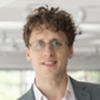Graduation day

Five years ago, Sonia and I decided to pursue PhDs in Biological and Biomedical Sciences at Harvard Medical School. We had been re-training as scientists for a little over two years at that time, long enough to know that we were ready to devote our lives to finding a treatment or cure for Sonia’s disease, and long enough to know that we needed to learn a lot more in order to succeed in this quest. But it was a leap. Instead of joining an estabished prion lab, we were betting that, with the help of some wonderful allies and the incredible environment for biomedical research in Boston, we would find a way to do the research we needed to do.
Sonia and I both defended our PhDs on April 16, and we received our diplomas today. Looking back, the PhD journey has been a tremendous success, moreso than we had even dared to dream in 2014. We didn’t know then that Stuart Schreiber would welcome us into his lab and pave the way for us to do exactly the translational research we needed to do. We didn’t know that Eric Lander would mentor us on our high-level therapeutic strategy and challenge us to think about how we would one day test a drug in the clinic. We didn’t know that the Broad Institute would provide us mentorship, funding, lab space, and institutional support to effectively set up our own research lab. We didn’t know that Steven Arnold at Massachusetts General Hospital would partner with us to launch a clinical research study on biomarkers in pre-symptomatic individuals at risk. In every way, the people and institutions around us — Harvard, MGH, and especially the Broad — have responded to our urgency and our determination and have moved mountains to enable us to tackle our really hard problem head-on.
The result is that, as Sonia likes to say, while we’re nowhere near the end of this quest, we’re also nowhere near the beginning. As Sonia described in her talk at Prion2019, we’ve launched a collaboration with a major pharmaceutical company to develop a rational, targeted therapy for prion disease, we’ve begun to establish a biomarker and to work with regulators to credential it for use in trials of such a therapy, we’ve launched a patient registry and natural history study. We can now glimpse, I hope, one model of what primary prevention of prion disease could look like in practice.
We owe so much to everyone who has helped us on this journey, including many collaborators in the prion field worldwide, and many mentors and volunteers here in Boston. To us, all the progress we have made has completely validated the risk we took five years ago — we were right to get our PhDs and right to do it here.
Looking forward, we want to stay in exactly the scientific environment that has made so much possible for us, and we want to continue full steam ahead without breaking stride as we aim to get a drug for prion disease into the clinic. As such, I am delighted to announce that we’ll be continuing to run our lab as group leaders at the Broad Institute. We will eventually be moving a few floors up to the Broad’s Stanley Center, where we will be surrounded by lots of bright people thinking about brain diseases, and over time, I hope and expect that our ties and relationships with other local institutions including Massachusetts General Hospital will also grow and deepen. Depending on funding, we also hope to be able to grow our group over time and open up new fronts in our fight against prions.
Therefore, graduation day does not mark much of a transition in our day-to-day life nor in our scientific focus, but it is a good time to reflect on where we’ve come in five years, and to say thanks to everyone who has helped us along the way. Thank you.
